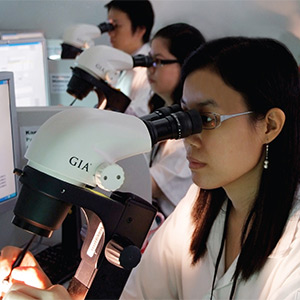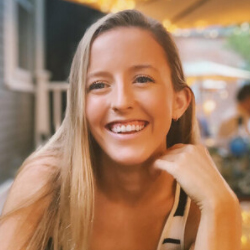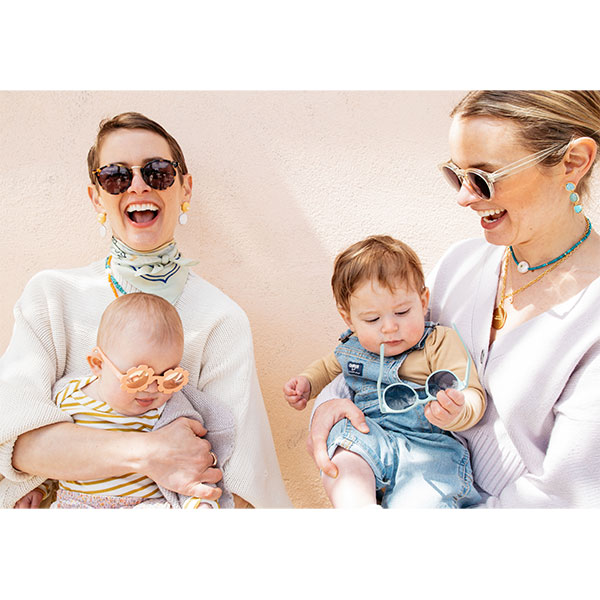
Every Thursday during the pandemic, we’re checking in on members of the jewelry trade in an attempt to glean shareable tips and tricks for doing business—and living as well as possible—during the COVID-19 crisis.
Today we hear from twin sisters Lizzie and Kathryn Fortunato, designer and operations director, respectively, of the New York–based statement jewelry line Lizzie Fortunato.
JCK: What a crazy year you two have had, between the pandemic and becoming moms within a week of each other last summer! [Lizzie gave birth to daughter Ruby and Kathryn gave birth to son Johnny last July.]
Kathryn Fortunato: When we went into lockdown last March, Lizzie and I and our husbands and our bellies fled to rural Pennsylvania, and we started shipping e-commerce orders from there, six months pregnant. Between the financial uncertainty of canceled store orders, which wasn’t unique to us, and the physical labor of getting product out the door ourselves when we normally had a team of 14 people taking care of that—
Lizzie Fortunato: It was intense. Fast-forward to July, and we were back in the city with someone in the office once a week to handle shipping, which made a world of difference.
Kathryn: Pre-COVID, we had discussed staggering our pregnancies, but it didn’t turn out that way. The fact that everything was on pause when we had the babies worked out.
Lizzie: We weren’t going to set any [sales] records in 2020 anyway, and the babies have been a wonderful distraction from the COVID madness. Time was on our side—and e-commerce kept us afloat.
Kathryn: We were so lucky that we had hired a full-time brand manager about three years ago whose job was to work on the website and social media. We thought that was a cherry-on-top kind of role. And now we’re like, oh wait—that’s the most essential role in the company.
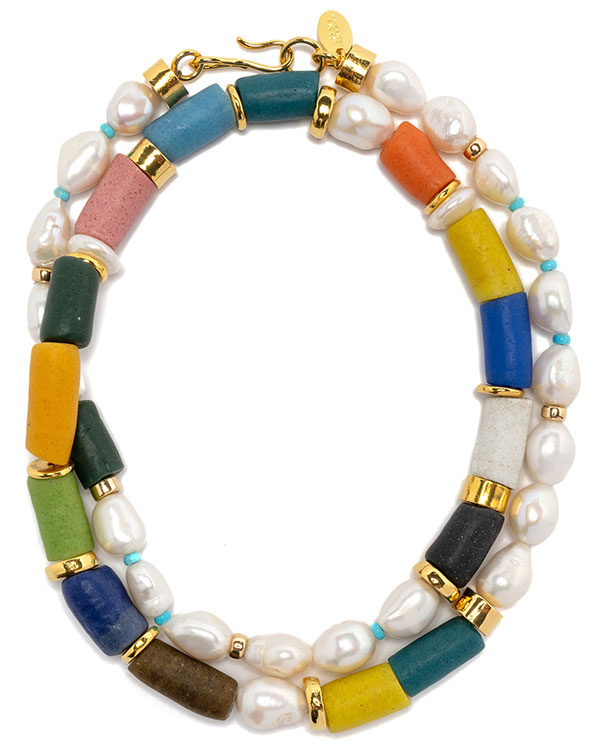
What adjustments did you make as a designer over the past year?
Lizzie: The first season we designed from home was the hardest. The design team would get on Zoom with material from the office or from vendors that would ship to us. We were fortunate that we don’t have a start-to-finish factory, because so many of those were shut down. Our stonecutter is a woman in Washington who works in her backyard; our assembly people make things on their kitchen tables. It’s the most piecemeal [system] ever. Somehow everything came together, but it’s not how I would have chosen to design a collection.
Kathryn: We launched masks, and they helped a lot with floating the business. Our design director recommended it around the time we went on maternity leave, and I will admit that I was skeptical. I said, “We’re not a clothing company, and everybody already has all the masks they need.” That was quite naive of me, and for a low-price product, it became an extremely meaningful revenue source.
Lizzie: Also DIY kits: We took a mixture of beads from our office, did a cute packaging with cords, and at a $60 price point [they] generated substantial volume for the second half of 2020.
Kathryn: That’s a whole new customer acquisition through a lower price point. They bought a mask and then came back for an earring.
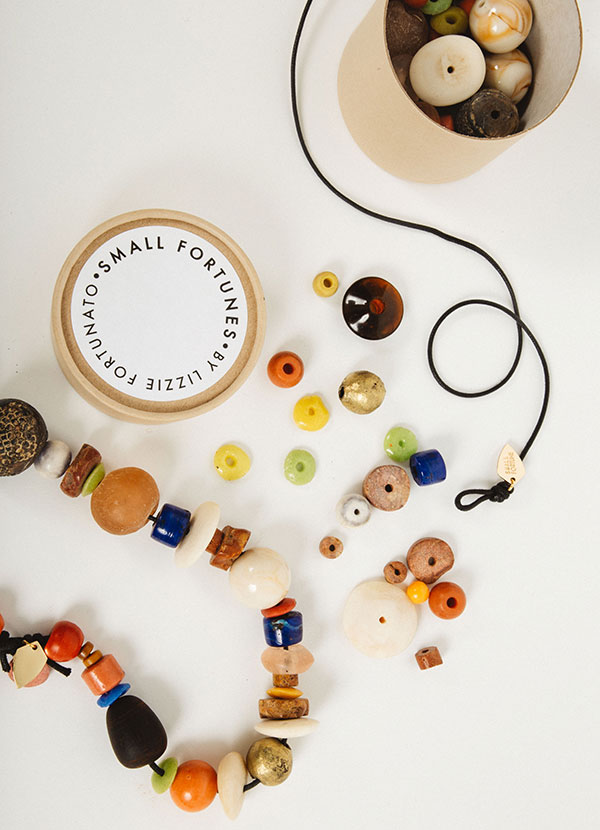
You specialize in statement jewelry. What are customers buying these days?
Lizzie: For the past year, it’s been a necklace moment, and people want pieces that feel heirloom-y and keepsake-y. Earrings had been our bread and butter, but for the first time in years, necklaces are selling better.
Kathryn: Right before COVID hit, we had started to delve a bit into 14 karat jewelry, and we found that people want to invest in things that feel timeless. Just as the masks opened up a less expensive price point, we’re seeing a desire at the $1,000 price point on our website in a way we never expected.
Lizzie: I think shopping took on an interesting new meaning during COVID. People who were working remotely had money to spend because they weren’t taking trips or going to restaurants. Special necklaces that we used to produce in small quantities because they were $795 became the fastest selling items on our website. Our stores kept saying, “We’re selling the things people fall in love with.”
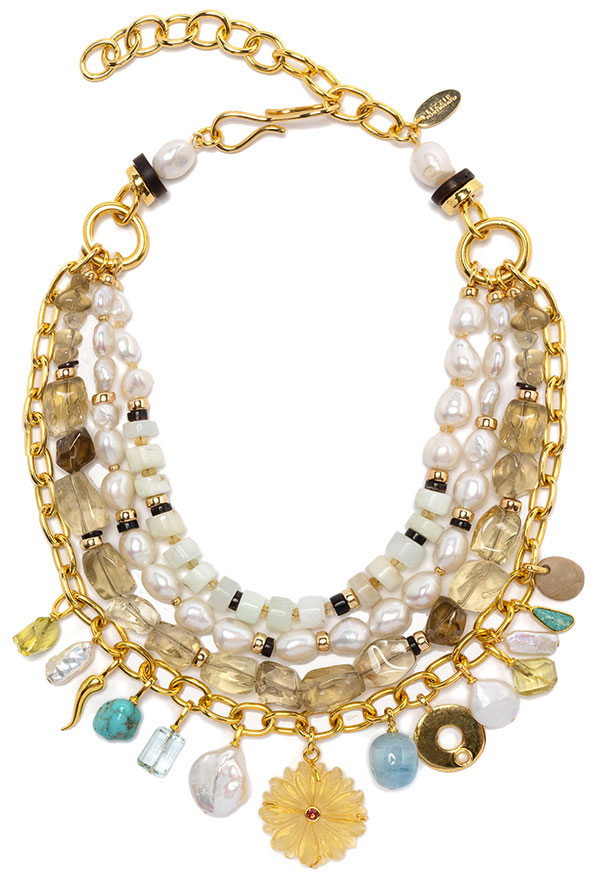
At this point, you two must feel like expert work/life jugglers.
Lizzie: Help is the name of the game, so we’re sharing a full-time nanny, which has been amazing. Mornings and nights and weekends are kid time, but when we’re in the office, it’s busy busy busy. We might leave at 4 instead of 7 to get home for the nanny, but busyness forces efficiency and productivity.
Kathryn: It’s definitely a full plate, but it all feels fun and rewarding. Lizzie went back from maternity leave and was designing for the first time in months and she [told the team], “I’m pleased to say that I still love making jewelry.” It feels good that we have this business, which was our original baby, and now two even cuter babies. And we’re actually booking sales numbers now that are worth being excited about.
With such a full plate, how do you relax? What are you watching or listening to?
Lizzie: In our attempt not to have screens in front of our faces all the time, podcasts are a good solution. I liked Nice White Parents, the New York Times podcast about the evolution of the public school system in Brooklyn [N.Y.]. SmartLess, the new podcast from Jason Bateman, Will Arnett, and Sean Hayes, is very funny and a great escape.
Kathryn: In terms of podcasts, when I was up in the middle of the night breastfeeding, How I Built This got me through. Hearing people tell their entrepreneurial stories, I would say, “If they can handle having to raise $10 million, I can handle getting up early to keep our business alive.”
Top: Lizzie with daughter Ruby and Kathryn with son Johnny
- Subscribe to the JCK News Daily
- Subscribe to the JCK Special Report
- Follow JCK on Instagram: @jckmagazine
- Follow JCK on X: @jckmagazine
- Follow JCK on Facebook: @jckmagazine

